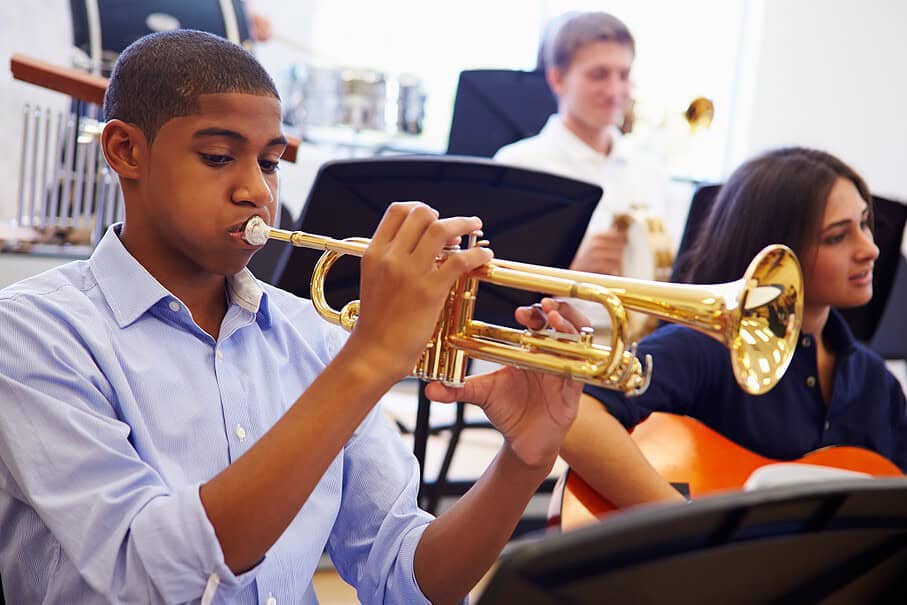Depending on the major or career you’re interested in pursuing, the college admissions process can look a little different. Students interested in the arts often have a few more requirements, including an audition or portfolio submission. I interviewed recent high school graduate Katy Holt to get her advice on the admissions process for students interested in music.
JSR: When did you know you loved to sing?
KH: My twin sister and I started singing as far back as I can remember. There are videos of us singing songs from the musical Annie when we were about four years old. In 4th grade I joined chorus at school, but after that took a break and played the clarinet. In high school, due to a free period in my schedule, I went with my friend one day and joined the freshmen acapella group. I loved it, so I auditioned the next year and was accepted to both chamber choir and madrigals, the premier singing group at school. During high school I encouraged others to join choir, and it made me happy when they loved it!
JSR: How did you decide to pursue music in college?
KH: My chorus teacher has been a great inspiration to me. I decided I would like to inspire and encourage others, so I wanted to continue singing and study music education in college.
JSR: With that interest, how did you go about the college search process?
KH: I visited a lot of colleges and gathered information along the way from others such as my teacher, church choir director, and step-father, who is a music professor. Once I visited a number of campuses, I realized I liked traditional, contained college campuses. I paid close attention to the faculty in the music department—I wanted to make sure that the department had a top tier staff and credentials. It was important to me that there would be a large number of students studying music at the college as well. Finally, I wanted to see and, if possible, sing in the performance space. At the college I finally chose, the recital hall was so beautiful, with a 60-foot ceiling and glass wall that overlooked a pond. And best of all, it had the most amazing acoustics.
JSR: What’s unique about the admissions process for students interested in music?
KH: The auditions. Most music majors will have to audition to get into a music program. The departments at the colleges give guidelines for what is needed for an audition, so I suggest students find out those requirements, select their music, and then learn it during junior year. For example, for the school I selected to attend, they suggested I sing one song in English and another in a foreign language. Schools usually also suggest singing a few songs with different style and tempo. Your high school music faculty can share ideas and help you choose your pieces. I listened to a lot of music on YouTube before deciding. I learned it’s best to audition in person if possible but, if that’s not possible, try to send a video that’s the highest quality you can create. It might be worth asking for help at school to use their equipment and to have someone take a video of you on your auditorium stage. If you can’t get to the college for an audition, you should also ask the college if they offer local auditions in your area.
JSR: Were you nervous for your auditions?
KH: Of course. Since I had to sing one song in Italian, I was afraid I wouldn’t get the words right even though I had spent a lot of time memorizing them. At the audition for my first choice college, I was lucky to be able to have 15 minutes to warm up with the accompanist. She was an expert and gave me tips such as, “Look up when you’re ready and that’s when I’ll start” as well as ideas for how to keep us flexible and together throughout the audition. She was great and it went well.
JSR: What will your coursework look like as a music education major?
K: In my first year, five out of seven of my classes will be music classes. I’ll have a couple of education classes to round out the year. It will mostly continue like that except for senior year, when I’ll be student teaching and very focused on the educational aspect of my career.
JSR: What if a student loves music but also has other interests and doesn’t want to commit to being a music major?
KH: There are so many ways students can continue being involved with music in college without majoring in music. They should contact the music department during the college search process to ask about open ensembles for non-music majors. Or there’s always the option to minor in music. One of my best friends will be a business major with a music minor.
JSR: You shared that on your graduation cap was a quote, “When words fail, music speaks.” That’s beautiful and I’m so happy you’re pursuing your dreams. Are you excited for the fall? Anxious?
KH: Both. There’s familiarity in what I’ll be doing at college and yet it will all be new too. My college doesn’t have an acapella group and that is something I really enjoyed in high school this past year, so I’m thinking I may start one!













